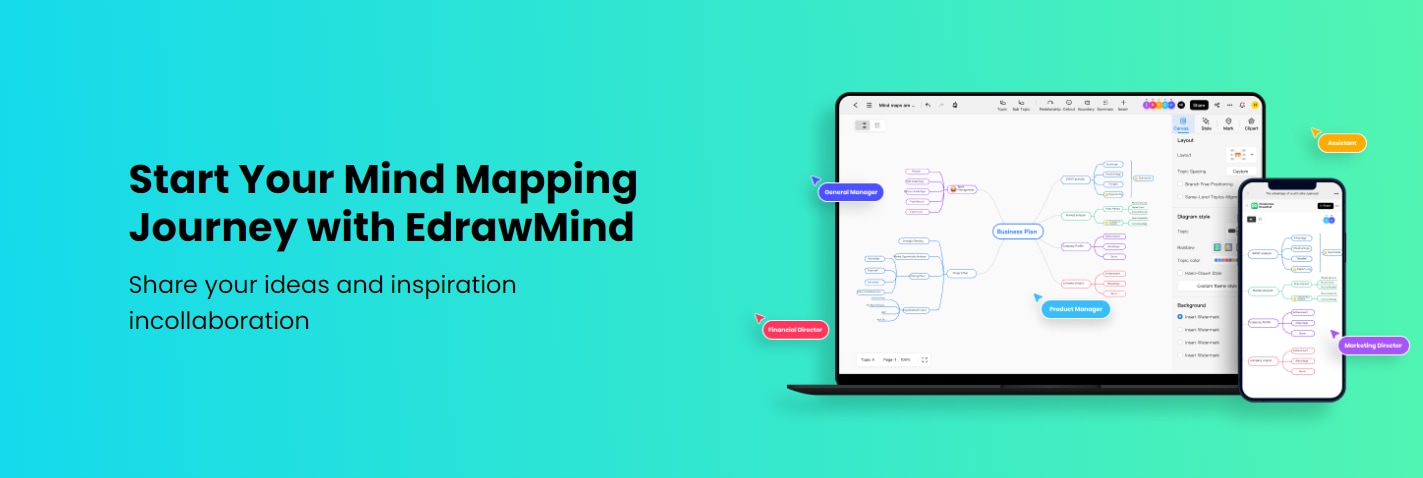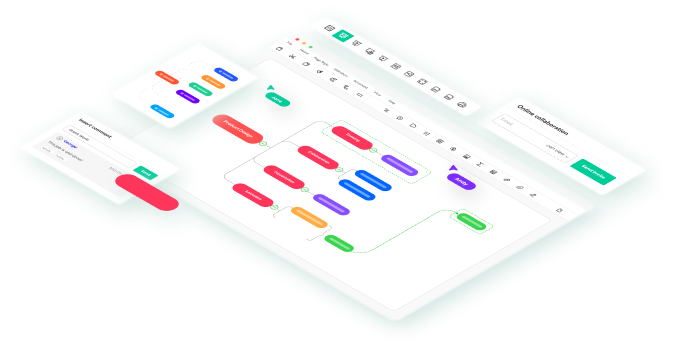Though brainstorming has been a universal technique for idea sharing, it is not that effective anymore. Therefore, the latest trend is brainwriting.
But what is it? Simply put, it is brainstorming without talking. In this technique, group members write their ideas instead of sharing them verbally. It is an inclusive approach for introverted people that gets rid of social anxiety and promotes diverse idea generation.
However, a typical brainwriting session can be overwhelming. So, if you want to get rid of sticky notes flying around the room and structured feedback, using tools with brainwriting examples like EdrawMind might be the right choice.

Free Brainwriting Examples & Templates
Brainwriting is more effective and easier with brainwriting examples. They allow moderators to get structured feedback and a flow of ideas in one place. Plus, if your team is new, having a ready-made template can set you off in the right direction.
So, let us check some useful brainwriting examples from the EdrawMind gallery and learn which suits who.
1. 6-3-5 Brainwriting for Big Teams
6-3-5 brainwriting is an excellent way for big teams to work on their creative juices. It best suits large business meetings but can also be adapted to other scenarios like brainstorming ideas for writing, lectures, workshops, and office spaces.
This technique happens over six rounds, each lasting for five minutes. Six people forming a group from the team write three ideas each in the first round. Once the round ends, they swap their sheets and write another three ideas. This way, the team gets 108 ideas for evaluation.
2. Remote Brainwriting
Have no time to physically arrange a brainwriting session? This virtual brainwriting template will help gather your team online for brainwriting. It can replace lengthy online meetings and serves as an excellent brainstorming example for essay writing, problem-solving, or reaching a consensus.
All you need is to edit the access for participants and allot time for responses. It works like a spreadsheet where the moderator allocates columns to each participant. The members then find their designated column and write ideas. Lastly, the responses are recorded for evaluation. This template even allows you to change the number of participants and rounds to your suitability.
Though participants are anonymous, the responses are visible to all, motivating members to come up with competitive ideas.
3. Collaborative Brainwriting
This brainwriting example is a collaborative version of the 6-3-5 technique. It is divided into a group of six people over four rounds, each lasting five minutes. But the twist is that the members do not have to come up with a new idea each round. Instead, they have to modify the idea in the first round.
Though you have a few ideas after this session, they are highly reasonable and practical. So, bring your team together, divide them into groups, and facilitate them to generate problem-solving techniques. You can even set a specific time for responses after distributing the slots to the participants.
Tips for Effective Brainwriting Session
Holding brainwriting sessions is more than getting people together with pen and paper. It must follow certain guidelines like maintaining privacy and facilitating members. So, let us check useful tips to organize these sessions effectively.
- Appoint someone to coordinate. They must have a personality to get the instructions across the board. It is better to hand notes to participants fifteen minutes before the session starts.
- A moderator must create a comfortable environment for the members. They must not feel judged. One way to maintain privacy is distributing separate sheets to each member with anonymous identities.
- Decide on the number of rounds beforehand. Decide the time for people to communicate properly, but don't drag it. Focus on the topic and set the time accordingly.
- Prioritize documenting the process. Use brainwriting templates with enough space to write. When the session is over, ask the moderator to save the filled sheets for further evaluation.
Free Brainstorming Tool

A free brainstorming tool can be incredibly useful for individuals or teams looking to generate ideas and solve problems. The advantage of using a free brainstorming tool is that it eliminates the need for traditional pen and paper brainstorming sessions, making it easier to capture ideas, keep track of them, and share them with others. This can greatly enhance productivity and creativity in any project or endeavor.
EdrawMind is a user-friendly brainstorming tool that enhances idea generation and collaboration. With its dynamic interface, it enables individuals and teams to visually map concepts, fostering creativity and seamless sharing for effective problem-solving.
- 6000+ Templates: Got a busy schedule? EdrawMind's brainwriting templates might make life easy for you. Go to the template gallery on EdrawMind, find a suitable example, and modify it for tomorrow's brainwriting session.
- Mind Map: Once you receive the responses from a group, document everything with its mind map function. It is an excellent way to skim through ideas whenever you are on the go and have no time to read extensive documents.
- Online Version: You can get started on EdrawMind Online anywhere with an internet connection. It even allows you to organize real-time collaborative team brainwriting sessions.
Conclusion
Brainwriting can yield fruitful results if done right. But preparing the sheets and keeping a record of idea cards can become chaotic. if you want to get rid of unnecessary clutter, using brainwriting examples might be a better choice. It helps organize all the participant's data and ideas in a snap.
So, be it a 6-3-5, collaborative, or virtual technique, having a brainwriting template is a blessing. What's better is that EdrawMind Online offers over 6000 templates, so finding a perfect match won't be an issue. So, give it a shot and decide whether it meets your diagramming needs.





 below.
below.  below.
below. 

